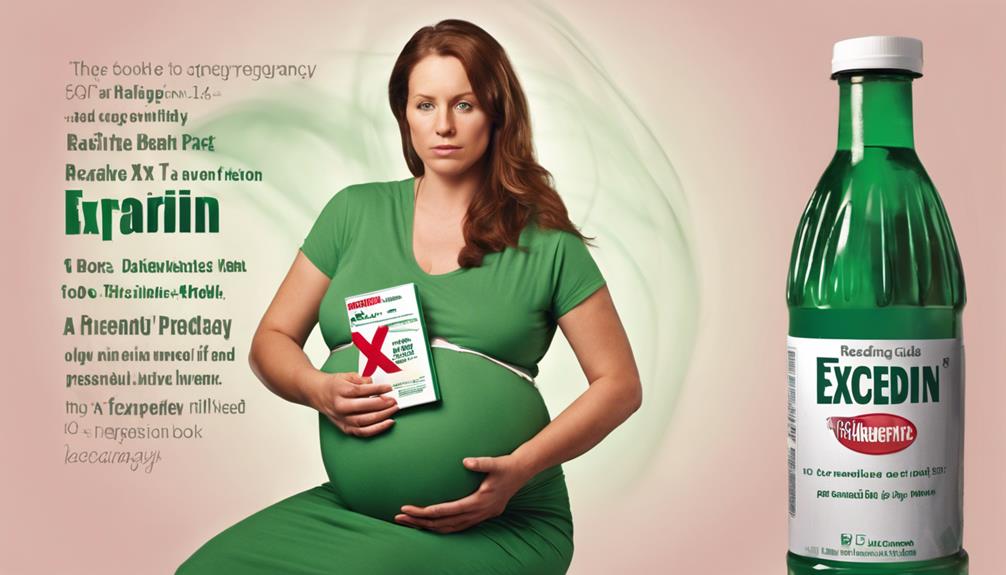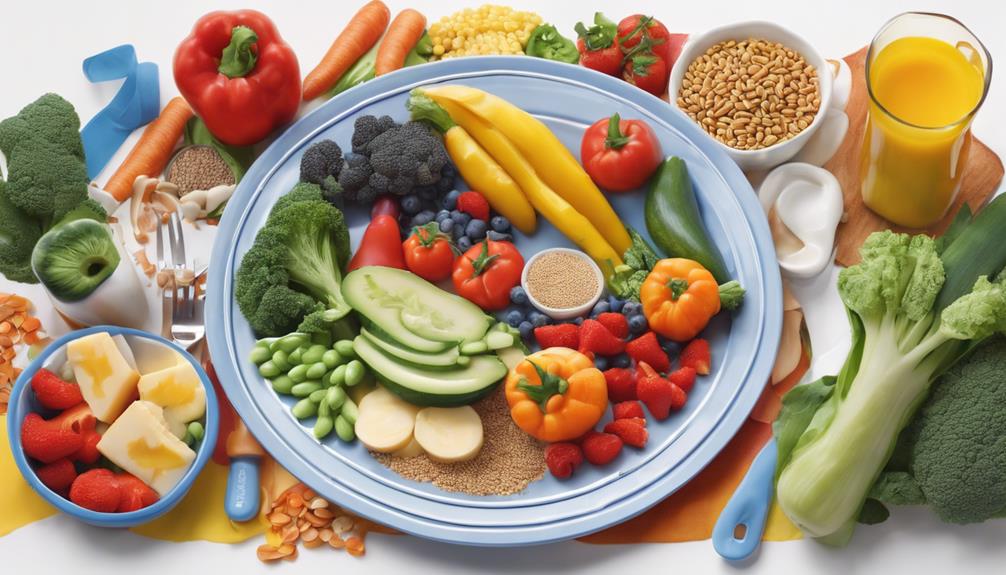Facing a scenario where a pregnant individual experiences a significant decrease in appetite in the first trimester, particularly when preparing for a gender reveal celebration, can pose significant challenges. It is important to consider strategies to address this situation, prioritizing the well-being of the expectant person and the development of the baby.
In the following discussion, we will explore practical strategies and expert recommendations to address this common concern effectively and promote a healthy pregnancy journey.
Key Takeaways
- Hormonal changes in the first trimester can cause appetite loss, impacting plans for a gender reveal celebration.
- Coping strategies like protein-rich snacks and small, frequent meals can help manage appetite changes.
- Choosing bland, easy-to-digest foods and staying hydrated can aid in dealing with no appetite.
- Seeking professional support from healthcare providers and dietitians is crucial for navigating appetite challenges during pregnancy.
Understanding First Trimester Appetite Changes
During the first trimester of pregnancy, many women experience significant changes in their appetite due to hormonal fluctuations and physical symptoms like morning sickness. These pregnancy hormones can wreak havoc on our taste buds, causing food aversions and even a metallic taste in our mouths, making it challenging to enjoy meals. Not to mention that with all these hormonal changes, some of us may find ourselves feeling full faster, thanks to our expanding uterus putting pressure on our stomachs.
Additionally, the unwelcome guests of heartburn and constipation can further dampen our desire to eat.
As our bodies adjust to the rollercoaster of changes in the first trimester, remember that these appetite fluctuations are entirely normal. While some of us may experience a decrease in appetite, others might find themselves craving more food than usual. The good news is that for many women, these appetite changes tend to improve as we move into the second trimester and bid farewell to the worst of morning sickness.
Coping Strategies for Food Aversions

When experiencing food aversions during pregnancy, incorporating protein-rich snacks like nuts, seeds, and nut butter can help guarantee essential nutritional needs are met. Opting for small, frequent meals with appealing foods can combat appetite loss and provide necessary energy.
Choosing bland, easy-to-digest options such as plain crackers and toast can ease nausea and make eating more manageable. It's important to stay hydrated by drinking water, herbal teas, or flavored water to prevent dehydration and support digestion.
Experimenting with cold foods like smoothies, fruit popsicles, and yogurt can soothe nausea and stimulate the appetite. Nuts and seeds are excellent choices for snacking, as they aren't only rich in protein but also provide essential nutrients.
Planning a Gender Reveal Celebration
Planning a Gender Reveal Celebration can be an exciting opportunity to share the joy of your baby's gender with loved ones in a creative and memorable way. Around the 18-20 week mark of pregnancy, expecting parents often organize gender reveal parties filled with fun and anticipation.
Creative ideas like balloon releases, cake reveals, or colored smoke bombs can add a special touch to the occasion. Guests eagerly participate in guessing the baby's gender before the big reveal, creating a sense of excitement and togetherness.
It's common to choose a theme or color scheme that hints at the anticipated gender of the baby, enhancing the overall experience. These celebrations provide a unique and joyful platform for parents-to-be to announce the gender of their baby to close family and friends, making the moment truly unforgettable.
Nourishing Foods for Pregnancy

As we navigate the journey of pregnancy, nourishing foods play an essential role in supporting our well-being and the development of our little one. During the first trimester, when appetite may be low, it's vital to focus on nutrient-rich options.
Protein-rich snacks like hard-boiled eggs and Greek yogurt can help meet our increased nutrient needs. Including bland veggies such as sweet potatoes and green beans guarantees we get essential vitamins and minerals for both ourselves and our baby.
Opting for sweet bites like fresh berries and oatmeal can provide much-needed energy and antioxidants. Incorporating bland grains like quinoa and brown rice can help maintain sustained energy levels.
Additionally, soups, broths, and healthy smoothies offer hydration and nutrients in an easily digestible form, perfect for when appetite is lacking. Remember, staying nourished is key to supporting both our own health and the growth of our little one.
Seeking Professional Support
If you find yourself struggling with a lack of appetite during the first trimester, seeking professional support can provide valuable guidance and reassurance. Consult with your healthcare provider for personalized advice on managing appetite loss. They can monitor your weight gain and overall health to guarantee you and your baby are receiving essential nutrients despite the challenges.
A registered dietitian can assist in creating a meal plan tailored to your needs, focusing on healthy foods rich in essential nutrients like vitamin B. Additionally, mental health professionals can offer emotional support for any concerns related to appetite loss during pregnancy.
Conclusion
To sum up, managing a lack of appetite during the first trimester can be tough, especially when planning a gender reveal. Did you know that up to 80% of pregnant women experience some form of food aversions?
Remember to prioritize nutrient-rich foods, seek professional support if needed, and focus on celebrating this special time in your life. Your health and the health of your baby are the top priorities, so take care of yourself during this exciting journey.










